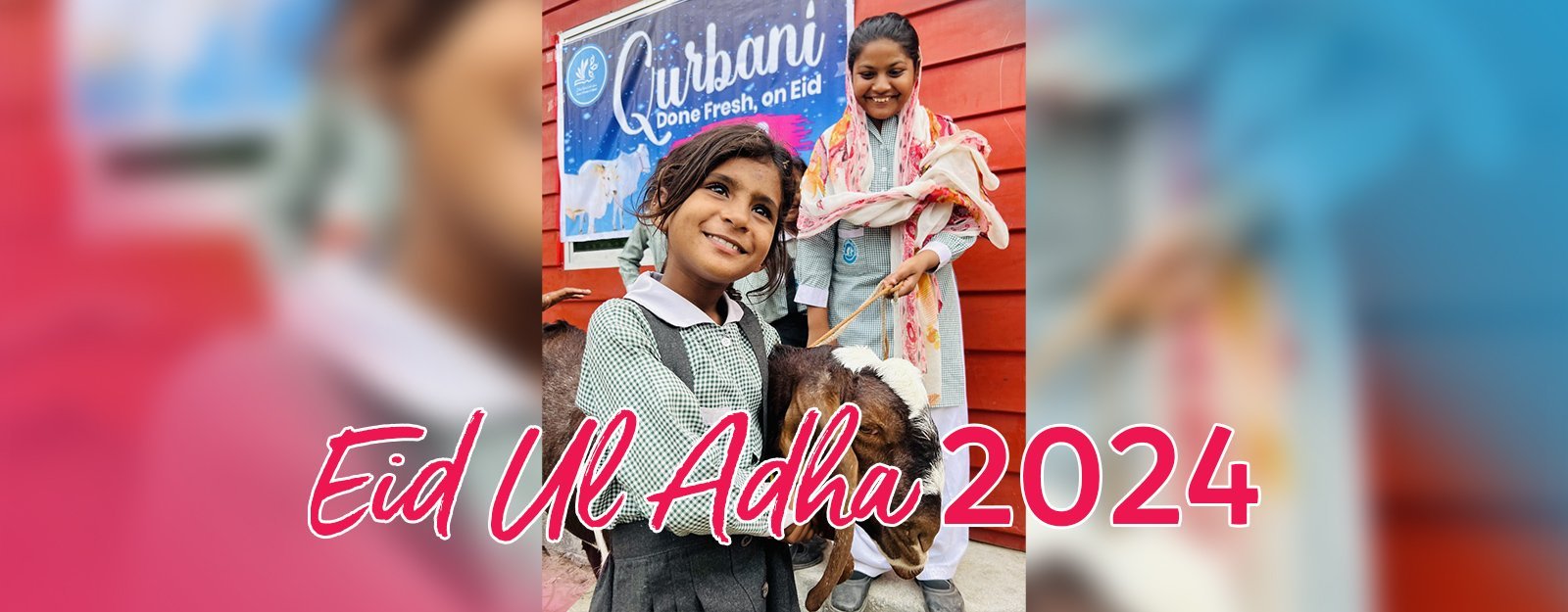
As the crescent moon of Dhul Hijjah appears on the horizon, Muslims around the world prepare to celebrate Eid ul Adha, also known as the Festival of Sacrifice. Eid ul Adha is a significant religious celebration observed by Muslims worldwide. This auspicious occasion commemorates the willingness of Prophet Ibrahim(AS) to sacrifice his son Isma’il (AS) as an act of obedience to Allah’s command. As Ibrahim demonstrated unwavering faith and obedience, Allah replaced Isma’il(AS) with a lamb, symbolizing divine mercy and provision.
The Spirit of Sacrifice
Eid Ul Adha in 2024 will be on 17th June in Pakistan. At the heart of Eid ul-Adha lies the spirit of sacrifice. Muslims commemorate Prophet Ibrahim’s unwavering faith and obedience by sacrificing an animal, typically a goat, sheep, cow, or camel. This act symbolizes devotion, submission to the will of Allah, and a reminder of the importance of selflessness and compassion towards others, especially those in need. The meat from the sacrificed animal is divided into three parts: one-third is given to the needy, one-third is shared with friends and family, and one-third is kept for personal consumption.
Strengthening Bonds of Community
Eid ul-Adha serves as a unifying force, bringing together Muslims from diverse backgrounds to partake in prayers, festivities, and acts of charity. Communities come alive with the sounds of Takbir (the declaration of Allah’s greatness), as families gather for special Eid prayers at mosques or outdoor prayer grounds. After prayers, people exchange heartfelt greetings of “Eid Mubarak” and embrace each other, reinforcing the bonds of brotherhood and sisterhood.
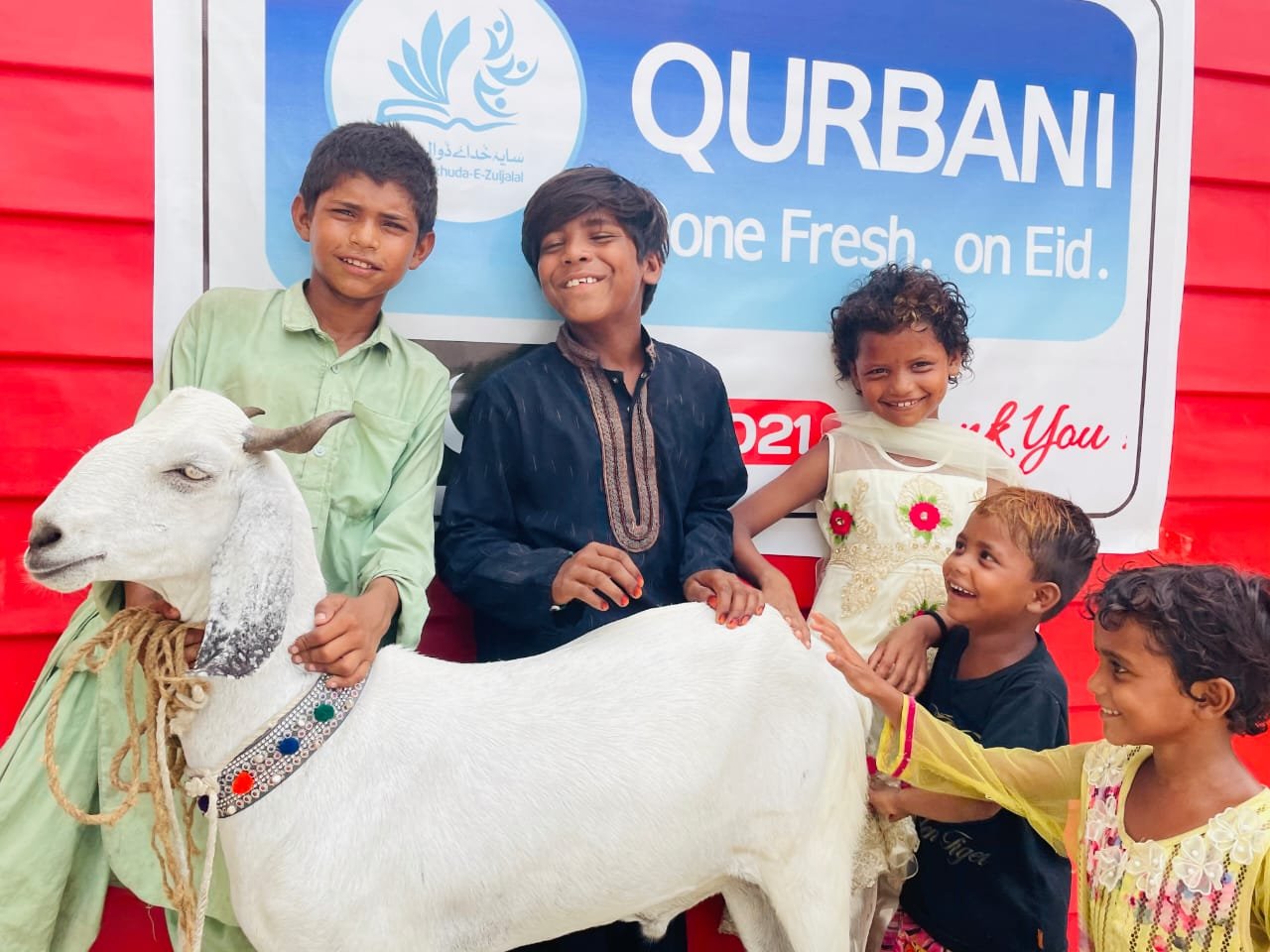
The Significance of Sacrifice
Central to Eid ul-Adha is the concept of sacrifice. Muslims around the world commemorate Prophet Ibrahim’s readiness to sacrifice his son, signifying submission to the will of Allah. This act underscores the importance of obedience, trust, and devotion in the face of trials. Today, Eid ul-Adha serves as a reminder of the sacrifices individuals make for the sake of their faith, families, and communities.
Eid Ul Adha Celebrations in UK
Given that the UK is home to Muslims from diverse cultural backgrounds, Eid traditions may vary significantly from one community or family to another. In the UK, as in other parts of the world, Muslims typically commence the day by performing ghusl. They then wear their Eid attire and gather for a congregational prayer either at an outdoor prayer ground or their local mosque.
Following the prayer, it’s customary to exchange warm embraces and offer the traditional greeting of “Eid Mubarak”. Additionally, there’s a tradition of presenting gifts to children and visiting friends and relatives to share in the joyous occasion.
In the UK, it’s often customary to contribute funds to Muslim charities dedicated to aiding those in need, providing less fortunate families the opportunity to partake in a proper Eid feast. Additionally, mosques or community groups may organize communal meals, fostering a sense of unity and solidarity within the community.
Moreover, some mosques may host study days or lectures focusing on various aspects of Islam and Islamic history, offering opportunities for spiritual enrichment and learning amidst the festive celebrations.
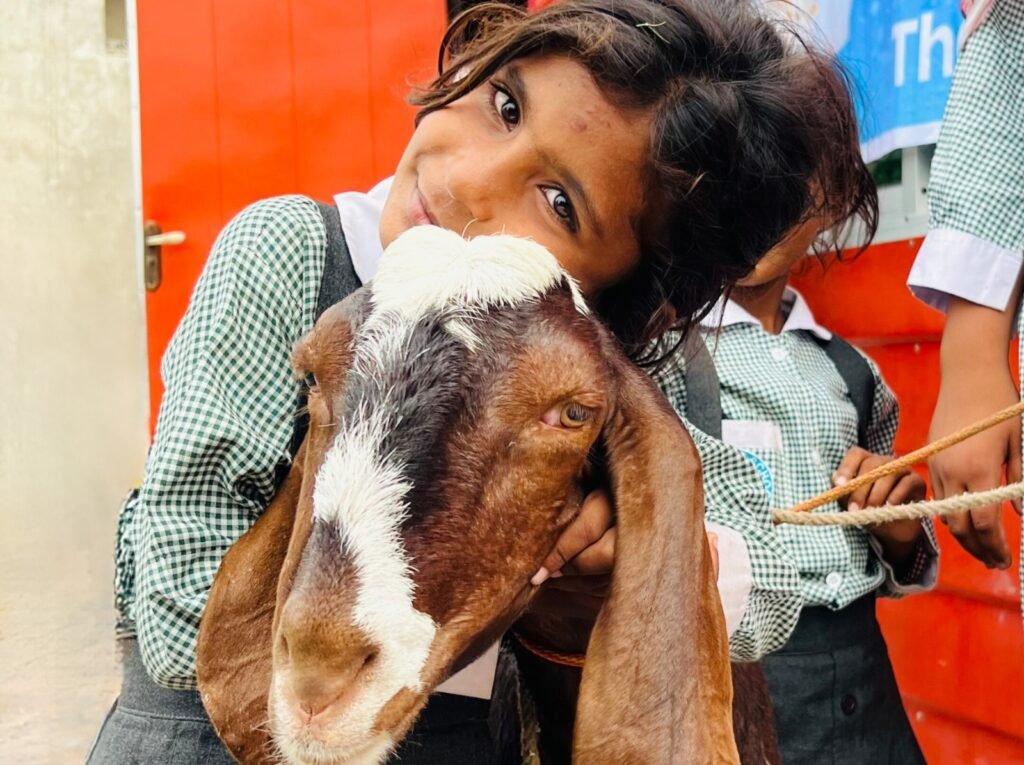
Unity in Diversity
Eid ul-Adha promotes unity among Muslims of diverse backgrounds and cultures. Regardless of nationality, ethnicity, or social status, Muslims unite in prayer, celebration, and acts of charity. This unity highlights the universal principles of Islam—compassion, solidarity, and brotherhood. In a world marked by division and strife, Eid ul-Adha develops a sense of belonging and shared humanity.
Generosity and Charity
Charity, known as Zakat ul-Fitr, is an integral part of Eid ul-Adha. Muslims are encouraged to share their blessings with those less fortunate, ensuring that everyone can partake in the joy of the occasion. From donating sacrificial meat to supporting humanitarian causes, acts of charity exemplify the spirit of Eid ul-Adha. In an era marked by economic disparities and humanitarian crises, these acts of generosity offer hope and relief to the marginalized and vulnerable.
Moreover, Eid ul-Adha serves as a timely reminder of the interconnectedness of humanity and the importance of collective responsibility. As we witness humanitarian crises, environmental degradation, and socio-economic disparities, the principles of sacrifice, unity, and generosity embodied by Eid ul-Adha offer a roadmap for positive change.
Through the SKZ Foundation’s efforts, the meat from these sacrifices is distributed meticulously in slum communities, where poverty often looms large and access to nutritious food is limited. This distribution serves as a beacon of compassion, ensuring that the blessings of qurbani are shared equitably among those who are less fortunate.
In the slum communities, the distribution of qurbani meat brings more than just physical sustenance. It develops a sense of solidarity and unity, reminding individuals that they are not alone in their struggles. It’s a manifestation of the Islamic principle of caring for one’s neighbors and sharing blessings with those who have less.
Donate Now: Making a Difference
As we celebrate the blessings of Eid ul-Adha, let’s remember the less fortunate and extend a hand of compassion and solidarity with SKZ Foundation.


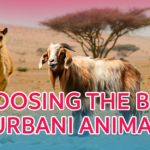
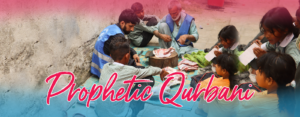
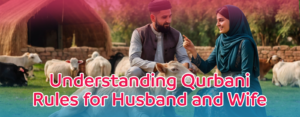
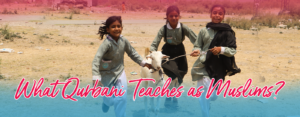
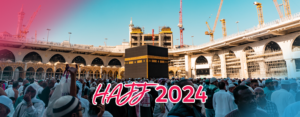
No comment yet, add your voice below!